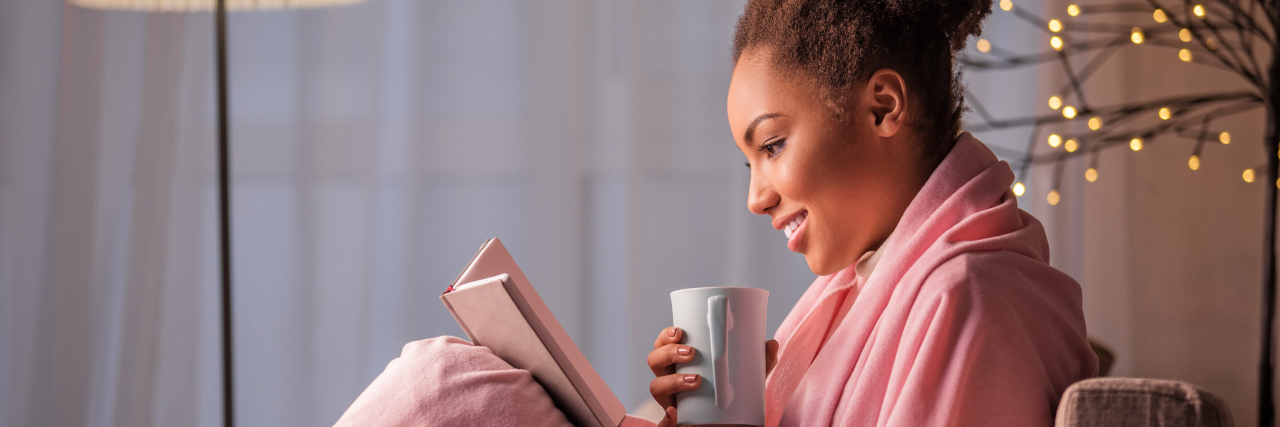I have lived with primary immune deficiency disease for nearly five decades and have worked at trying to stay well most of my life. I have picked up many tips along the way that I hope can help others during this pandemic. Here are lessons immunosuppressed patients have learned about staying safe and well.
1) We have learned ways to prevent infection.
Not touching our faces, avoiding crowded places, not accepting invitations that sound high risk to us. I am pretty good at noticing when others are sick and keeping a distance. I notice things like coughing, or a voice that sounds a bit hoarse that often goes unnoticed by others. I am also decent at visiting places without touching a thing. I have been doing many of the things people are being told to do right now for years — just not to this degree. Some tips for you today are: clean all your high-touch surfaces every morning with a proper disinfectant before it slips your mind. I also wash my hands and reusable face mask at the same time the second I arrive home.
2) We are experts at dealing with isolation.
Like most people, this pandemic is the most isolation I have ever had to deal with, but it’s not my first rodeo. As a child with primary immune deficiency, I missed a lot of school due to illness. My mom worked and I was an only child, so I learned to care for and entertain myself. That skill set has stayed with me for life. I was never a child who was bored and I am not an adult who is ever bored. I always have things to do. In preparing for some quarantine or lockdowns this winter, I have stocked up on books and videos. Many people throughout history have used times of isolation to their advantage. It is a great time to learn something new, develop ideas and work on whatever you want to work on.
3) We understand disappointment.
I have missed many important things throughout my journey with immune deficiency, and that is not at all uncommon. Illness has stuck before parties, events and holidays. Someone else being sick or just a high level of flu or other infectious disease has also kept me home many times. It’s disappointing, stressful and not at all fun, but sometimes health matters do come first. I know many, many things have been canceled in 2020, but the health of our country is invaluable. It’s hard to not celebrate holidays and milestones in our usual way, but it is important to retain perspective on it. We will enjoy better times ahead with those we love if we remain careful now. Instead of only being disappointed and miserable, try finding things in each day you can be grateful for.
4) We’ve learned about responsibility and discipline.
It’s easy to be born perfectly healthy. It’s not so easy when you are born with something wrong that can make it hard to survive. Part of my immune system is missing. It takes hard work and discipline for me to stay healthy. I have often wished I could bottle the chronic illness experience to share with healthy people who do not take care of their health. What if they could feel the fatigue, the pain or the respiratory issues of an immune patient? Could they learn to value health and live in a more disciplined way? I have been frustrated watching many people take unnecessary chances with SARS-COV-2. Even if you feel assured of your survival, what if you have long-term damage or effects? If you are not the self-disciplined type, know that any of us can change if we want to. Being responsible, showing self-restraint is like muscle building. The more you work out, the easier it will get.
5) From physical suffering and loss comes strength.
I’ve been paralyzed. I’ve been in so much pain that I have gone into shock. There have been a number of times I thought I was dying. I also experience migraines, so I understand the misery that chronic illness and pain can cause. All these experiences, if you get through them, can build strength. If you can manage even simple tasks while in agony, you have conquered. Every time you get back up and keep trying, keep moving forward and do not give up, you have built resilience. I wish there was an easy way to teach this to those who have gone through less. With COVID-19, everyone is going through something — loneliness, loss of income, illness, etc. Know that while 2020 has not exactly been anyone’s year, surviving the hardship of it can make you stronger and more confident in your ability to get through other difficulties in life.
6) We learn to cope with uncertainty.
I have three rare diseases. Rare disease patients are like pioneers. Most of us do not even have a single FDA-approved treatment for our conditions, I am in the very lucky percentage that does. Rare disease patients know that sometimes we will not get answers or help even from the world’s best experts because they simply do not yet know. It’s a very different experience than when you are diagnosed with something relatively common. And in many ways, the uncertainty of living with a rare disease prepares one somewhat for living in uncertain times that we are finding ourselves in today. Accepting what is and making the best of things that you can is often our healthiest way to cope with all the unknowns and all that is outside of our control. “Control the controllables” is a great mantra.
7) With love, much is possible.
My mom knowing that I was fragile but not really understanding my diagnosis did keep me safe from many infections. Now during this pandemic, I see my husband taking many precautions he would not if I were healthy. With love, a child with a life-threatening illness grew up and learned to thrive, and with love, my husband is trying his best to keep me safe from this pandemic until effective treatments and or vaccines are available. The pandemic is still not over, but I have made it this far and that is a testimony to what is possible when people truly love and care for each other. Love itself is a miracle, though we often take it for granted. Cherish those who are showing you love and respect during this most difficult time.
8) Respect for experts.
Patients like me have had to learn a lot about the immune system and infectious disease. We have access to experts such as immunologists, infectious disease specialists and researchers. This makes us more immune to misinformation, at least about infectious disease. Conspiracy theories, lack of trust and our divisions have hampered our response to COVID-19 in the USA. Lack of public cooperation continues to plague us. It’s absolutely tragic that we can not show a unified front to a common enemy. Instead, people are fighting over face masks, ignoring guidelines and hating the restrictions put on us that may not even be necessary if only we could get everyone on the same page. Try not to view this pandemic through a political lens only. Get your news from multiple and diverse sources. And please listen to and respect our experts. They are our best way through this pandemic.
Getty image by Yakobchuk Olena.


